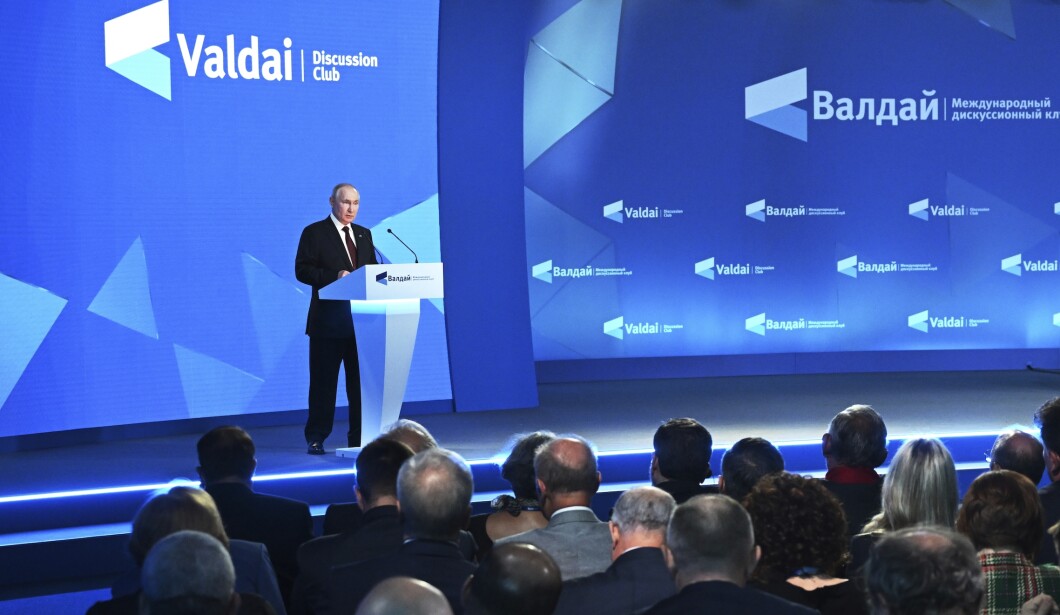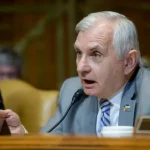
Russia’s parliamentary leaders plan to consider exiting an international treaty banning nuclear tests as a means of retaliation against Western support for Ukraine.
“We are talking about the withdrawal of ratification of the Comprehensive Nuclear Test Ban Treaty,” State Duma Speaker Vyacheslav Volodin wrote Friday on social media. “The situation in the world has changed. Washington and Brussels have launched a war against our country. Today’s challenges require new solutions.”
HOUSE SPEAKER RACE ENDORSEMENT LIVE TRACKER: WHO HAS BACKED WHO SO FAR?
Volodin embraced the idea after Russian President Vladimir Putin signaled his interest in the exit during his address to the Valdai Discussion Club. The Kremlin chief also positioned the withdrawal as a diplomatic maneuver against the United States.
“The United States signed the treaty without ratifying it, while we both signed and ratified it,” Putin said. “As a matter of principle, we can offer a tit-for-tat response in our relations with the United States. But this falls within the purview of State Duma MPs. In theory, we can withdraw the ratification, and if we do, this would be enough.”

Russia, the United States, and scores of other nations signed the comprehensive nuclear test ban in 1996. The ban built on a limited ban brokered involving the U.S., the Soviet Union, and the United Kingdom during John F. Kennedy’s administration, which banned tests underwater, in space, or in the open air. The U.S. Senate did not ratify the treaty, but the U.S. has not detonated a nuclear bomb since an underground test.
“Russian ‘de-ratification’ of the CTBT would be a clumsy, self-defeating gimmick that would have no effect on the United States nuclear test ban policy,” Arms Control Association Executive Director Daryl Kimball said Friday. “Instead, it would undermine efforts to bring into full legal force the CTBT, which has the support of the other 186 states that have signed the treaty since 1996, including China and virtually all of the world’s non-nuclear weapon states.”
Putin has relied on thinly veiled nuclear threats since he launched the full-scale war in Ukraine as a way to deter NATO from intervening on behalf of the Ukrainian government.
“Moscow will become even more reliant on nuclear, cyber, and space capabilities as it deals with the extensive damage to Russia’s ground forces,” the U.S. intelligence community said in an annual threat assessment. “Moscow continues to develop long-range nuclear-capable missile and underwater delivery systems meant to penetrate or bypass U.S. missile defenses. Russia is expanding and modernizing its large, diverse, and modern set of nonstrategic systems, which are capable of delivering nuclear or conventional warheads, because Moscow believes such systems offer options to deter adversaries, control the escalation of potential hostilities, and counter U.S. and allied conventional forces.”
CLICK HERE TO READ MORE FROM THE WASHINGTON EXAMINER
Putin suggested that the withdrawal from the treaty might improve the quality-control process around nuclear innovations.
“Our effort to develop new strategic weapons is nearing completion,” Putin said Thursday. “Specialists tend to argue that these are new kinds of weapons, and we need to make sure that their special warheads are fail-free, so we need to test them. I am not ready to tell you right now whether we need or do not need to carry out these tests.”






